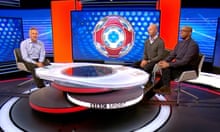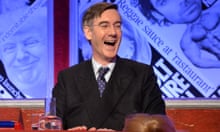Brexit has already split a nation, enraged millions on both sides of the debate and left a country teetering on the brink. Now it has come for the nation’s sports stars, with leading former footballers and cricketers squabbling about an exit on World Trade Organisation terms.
To confuse things further, many of these sporting figures also work for the BBC – prompting further handwringing at the corporation and a debate over whether the broadcaster’s sports presenters should be subject to the same impartiality rules as its news reporters.
At the heart of the debate is the role of Gary Lineker, the former England player and host of Match of the Day, who has used his Twitter account to wage a campaign for a second referendum alongside an unrelenting war on Theresa May and the Brexit process – angering some colleagues.
“Gary. You are the face of BBC Sport. Please observe BBC editorial guidelines and keep your political views, whatever they are and whatever the subject, to yourself,” tweeted Jonathan Agnew, a former Leicestershire player and now a Test Match Special commentator. “I’d be sacked if I followed your example. Thanks.”
Lineker shot back, insisting there was no ban on the BBC’s non-news staff taking political stands. “I’m the face of my own Twitter account. I’ll continue to tweet what I like and if folk disagree with me then so be it,” he said. “Thank you so much for your concern, which, I imagine, wouldn’t be a concern at all if you agreed with me.”
A BBC spokesperson confirmed that Lineker’s interpretation of the rules was correct and it was only news and current affairs staff who must silence their own views on Brexit. The situation is complicated by the fact that a decade ago, in a pre-social media age, Lineker would not have had an easy outlet for his views on politics, beyond the occasional intervention during a newspaper interview.
But Lineker’s 7 million Twitter followers – a number that is substantially higher than the following of any leading British politician – have given the BBC’s highest-paid star a direct line to his audience, enabling him to create news headlines with every tweet.
In addition to Agnew, who felt compelled as a result of their exchange to say publicly that he had voted remain, Lineker has also recently taken on the former England cricket captain Michael Vaughan and former England football colleagues. As guest host of Have I Got News for You on Friday night, he joked that the issue should be settled by a penalty shootout between remainers and Brexiters.
In recent days, Lineker has pitted himself against fellow members of the 1986 World Cup squad after the former goalkeeper Peter Shilton expressed his support for pro-Brexit Conservative MP Jacob Rees-Mogg and the forward Chris Waddle endorsed a no-deal exit. Peter Reid, the former Everton and England midfielder, also weighed in against Shilton.
Existing BBC rules ban news and current affairs staff from revealing how they vote, expressing a view on any policy that is a matter of current party political debate or advocating a particular position on a matter of public policy, political or industrial controversy or any other “controversial subject”.
For some this can be stifling. Gavin Esler, the former Newsnight presenter who left the BBC last year, has used his freedom from the corporation’s guidelines to adopt a staunchly anti-Brexit position in his tweets and writing. “If I was working in the BBC I couldn’t say any of the things I say now about People’s Vote,” he said. “I think Gary Lineker – as somebody who is there to talk about football – if he wants to talk about the future of our country, that’s fine.”
Despite this, Esler still believes that the corporation’s leading news presenters should not speak out about their personal views on Brexit. “If Huw Edwards did it then I’d be shocked. Andrew Neil is little bit between the two: he’s a first-rate interviewer, but he’s also got certain views and is associated with magazines like the Spectator that take a very robust view, which is slightly more problematic.”
Esler said the BBC struggled to cover Brexit owing to its attempts to balance the debate, which he compared to giving airtime to global warming sceptics. “What’s difficult is balancing people who know things with people who don’t. You can balance leave and remain in the run-up to the vote. You can’t balance people who know how to negotiate trade deals with people like Liam Fox who don’t.”
Some sportspeople still seem to be unaware of the consequences of their words. Michael Vaughan tweeted: “Give me a Donald Trump-style leader over any of our leaders any day of the week.”
Following a barrage of criticism from Lineker and other remain supporters, he deleted the message and added: “Note to self … Don’t ever mention DT on Twitter again in any way, shape or form.”










